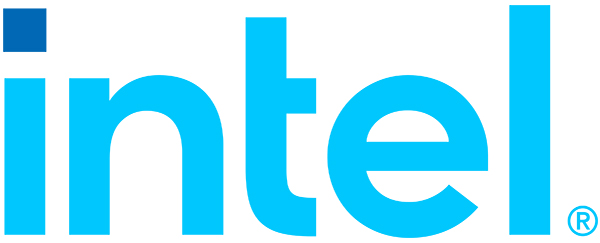
In a recent webinar IDC and Fujitsu shared insights on ecosystem business models and the implications and opportunities for partners. As Fujitsu rolls out its own ecosystem initiatives, partners can now start to access enhanced benefits of collaboration and co-creation while working together in new ways.
This is the second of four blogs exploring some of the themes from the webinar. In this blog, we share our thoughts on how data-driven partners stand to benefit from ecosystem participation. This builds on the foundational IDC blog explaining how ‘Ecosystem models drive future partnering success’

When it comes to data-driven transformation and the role of ecosystems, it is important to start from the customer perspective and understand their objectives. A compelling data-driven strategy for a customer needs to look beyond data access and data security and explore opportunities around data monetization.
Increasingly, as more customers digitally transform, they are looking for innovative ways to extract value from their data, and even monetize their data. In November last year IDC ran a survey with 765 European organizations across 17 industries and multiple countries. We asked respondents what activities they were going to focus on to ensure future business growth and resilience, 38% of companies were looking change or adapt their existing business model into a digital business, 36% were creating new digital products and services and, critically, 18% were already looking at ways they could monetize their data.
This direction of travel creates significant opportunity. These companies are looking for help from a range of partners to extract value and build new digital services based on their data assets. The ability to map these opportunities and tap into the potential of a wider partner ecosystem has become more important than ever.
A great example of this comes from the global market data firm, Nielsen. It has launched a new digital product called Nielsen Connect, which it describes as, ‘an open, cloud-native measurement and analytics platform for retailers and manufacturers’. Nielsen Connect allows platform users access to data, predictive analytics, and use-case focused applications, and customers can ‘slice and dice’ and use very granular data in self-serve applications, tailored to their specific business needs. Ecosystem is a critical component of this strategy.
It has also announced a partner ecosystem associated with the platform (Connect Partner Network) that consists of tech-driven solution providers - particularly in the analytics, AI, and machine learning space - and ISVs for retailers and manufacturers in the consumer packaged goods (CPG) industry.
What is interesting in this example is the range of partner types it encompasses from ISVs through to digital agencies, systems integrators, and strategy consulting firms. We strongly believe this open attitude to participation roles is critical to ecosystem success.
Partners have an incredible opportunity to help customers, like Nielsen, not just unlock the value of their data, but also ensure their data remains secure and is managed effectively. This opportunity has not gone unnoticed, and a variety of partners - from different business backgrounds – are positioning themselves to better meet customer needs.
But becoming a data-driven partner with the necessary skills and expertise is a significant undertaking that requires considerable effort and investment – it requires a range of abilities and attributes to success. That is why many partners are looking at new ways to approach this and realizing how ecosystem participation can accelerate their journey to provide compelling data-driven solutions and services to their customers through collaboration.
Rather than trying to build and develop everything internally, ecosystem models allow partners to work together, leverage each other’s skill sets and supplement each other’s capabilities. The ecosystem approach means partners can quickly and efficiently bring-to-market the data-driven solutions customers want and need.
Proactive ecosystem participation gives partners the opportunity to expand what they can offer to their own clients, while also plugging their expertise into the solutions other partners are offering to their clients. That creates efficiency for partners and allows them to focus their own development on specific areas where they have the deepest expertise and capabilities.
IDC’s European Partner Survey in 2020 shows that this change in partner mentality is gathering momentum, with 31% of partners currently collaborating with other partners and 36% considering it as part of their plans. That means that two-thirds already acknowledge there is a better way than trying to do everything themselves. This is why Fujitsu’s ecosystem platform will become increasingly important to data-driven partners. It provides a gateway to new possibilities, new capabilities and new partnerships that together can help partners deliver best-of-breed data-driven transformation solutions and services to customers.
Ecosystem business models, like Nielsen Connect, benefit from having a variety of partners with diverse skills sets, including services firms, consultants, data-as-a-service providers, start-ups, ISVs, industry players and more. IDC's research shows that already 83% of European partners are either currently collaborating or considering collaborating with start-ups to offer more disruptive and innovative solutions. And 96% of partners are either currently co-creating (64%) or considering co-creating (32%) with vendors (including ISVs) to develop new digital products and surfaces.
For data-driven partners, participation in ecosystems offers a pathway to accelerated innovation, continued customer relevance and future growth. Subsequent blogs in the IDC series will explore in depth how service providers and digital infrastructure specialists can benefit from ecosystem participation. To learn more about the benefits of ecosystem business models and how Fujitsu partners can participate effectively, access the recent IDC webinar, ‘Collaboration, Co-Creation, Co-Opetition: Ecosystem Implications & Opportunities for Fujitsu Partners .
“As IDC stated, supporting and delivering customers’ digital transformations is a complex and long-term process which requires best of breed expertise from a wide variety of disciplines; it is extremely difficult for one organization to maintain best of breed capabilities in all necessary areas. Therefore, a critical differential of Fujitsu’s approach is our emphasis on our ecosystem-led approach; Fujitsu adds industry leading ecosystem partners to our own comprehensive products and services to assure that our customers get the best of all worlds." – Glenn Fitzgerald, Fujitsu Chief Data Officer
That’s why, at Fujitsu, our collective focus is on co-creating business value. It’s time for us all to challenge old assumptions and to shape a new future for every member of the ecosystem – built on trust, mutual respect and long-term success.
Participation in the Fujitsu Ecosystem Platform just requires each partner to complete a company profile. Sign up today: www.fujitsu.com/ecosystem

HCI solutions based on Fujitsu and Intel technologies deliver highly scalable performance, centralized management and enhanced orchestration of data and workloads across private, hybrid and multi-cloud deployments. Intel® Xeon® Scalable processors, Intel® Optane™ technologies and Intel® Ethernet products provide a trusted, optimized infrastructure platform that speeds time to insights, lowers maintenance costs and reduces total cost of ownership. Cost effectively scale out your data centers as business needs grow—while taking advantage of Intel’s regular cadence of innovative platforms and technologies.

Margaret Adam is AVP for IDC's European Tech Ecosystems Group encompassing Professional and Managed Services, SMB, Startup and partnering ecosystems.
Based in London, Margaret is responsible for driving IDC’s research, innovation and thought leadership agenda on these topics. Central to this is understanding how broader industry trends impact the technology ecosystem and the relationships that customers have with their technology partners. This includes identifying next-generation services partners and channels, advising on innovative practices and understanding the implications and opportunities that digital transformation presents to the ecosystem.












